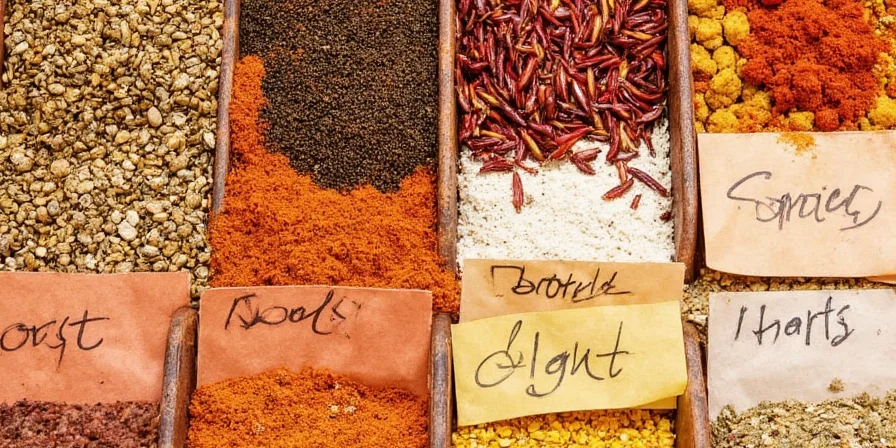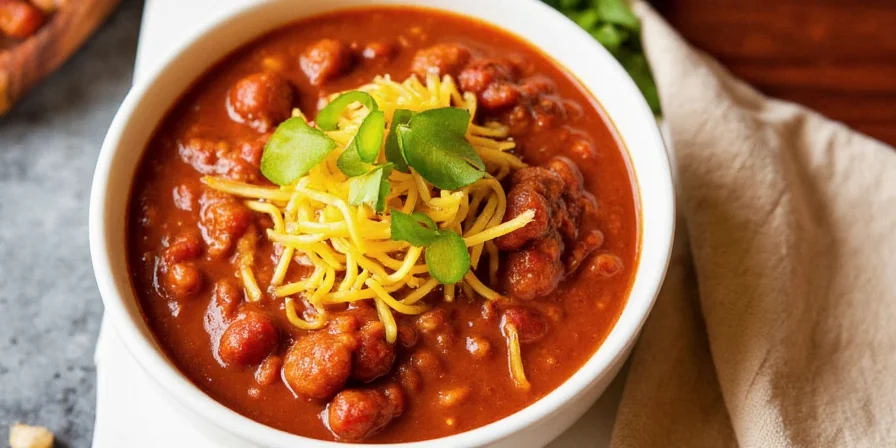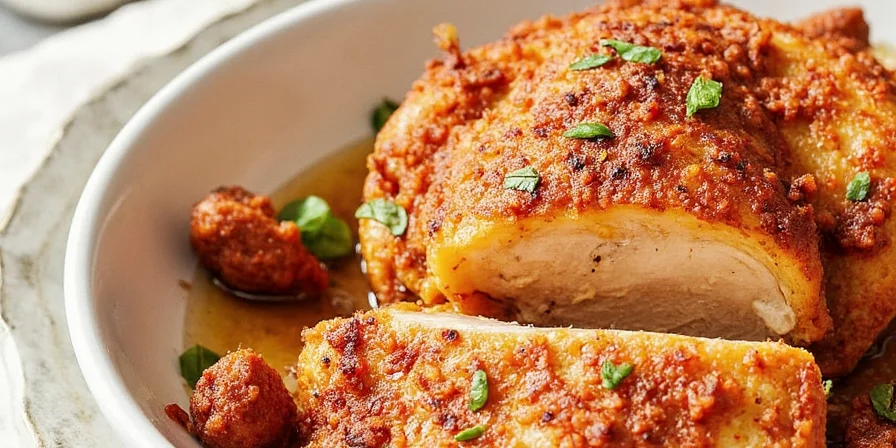Savory seasonings are flavor enhancers that create rich, satisfying taste experiences in your cooking. Unlike sweet or salty flavors, savory seasonings work by boosting umami - the fifth basic taste that makes food taste deeply satisfying and complex. For home cooks, understanding these seasonings means transforming everyday meals with professional-level flavor without complicated techniques. This guide reveals exactly which 7 savory seasonings deliver the most impact, how much to use for perfect results, and simple pairing strategies that work in any kitchen.
Table of Contents
- What Are Savory Seasonings? (Simple Explanation)
- Top 7 Savory Seasonings for Home Cooks
- Easy Usage Tips That Actually Work
- Best Flavor Combinations for Maximum Taste
- How to Store Spices to Keep Them Fresh
- Common Questions Answered
- Putting It All Together
What Are Savory Seasonings? (Simple Explanation)
Savory seasonings make food taste richer and more satisfying by enhancing umami - the natural 'deliciousness' factor in foods. Think of that satisfying depth in a well-made tomato sauce or perfectly grilled steak. These seasonings work with your taste receptors to create longer-lasting flavor satisfaction than basic salt or pepper. The best part? You don't need fancy equipment - just the right seasonings used correctly. Whether you're cooking weeknight dinners or special occasion meals, these ingredients transform ordinary dishes into something memorable.

Top 7 Savory Seasonings for Home Cooks
These 7 seasonings deliver maximum flavor impact with minimal effort. Each was selected for real kitchen usability, shelf life, and versatility across common cooking methods:
- MSG (Monosodium Glutamate)
Just 1/8 teaspoon per pound of meat or 4 servings of soup adds noticeable depth without altering flavor. Perfect for soups, sauces, and meat dishes. - Smoked Paprika
Adds instant smoky richness. Use 1/2 teaspoon in chili, 1 teaspoon in marinades, or sprinkle on roasted vegetables before serving. - Garlic Powder
More consistent than fresh garlic. Add 1/4 teaspoon per serving to sauces, dressings, and rubs for balanced savory flavor. - Onion Powder
Provides foundational sweetness. Use 1/4 teaspoon per serving in soups, stews, and meat mixtures. - Dried Mushroom Powder
Grind dried mushrooms in a spice grinder. Add 1 teaspoon to sauces, gravies, or plant-based dishes for instant umami boost. - Za'atar
This Middle Eastern blend adds complexity. Sprinkle 1 teaspoon on roasted vegetables, meats, or mix with olive oil for dipping bread. - Soy Sauce or Tamari
Use instead of salt in cooking. Replace 1/4 teaspoon salt with 1 teaspoon soy sauce for enhanced flavor.
Easy Usage Tips That Actually Work
These simple techniques deliver professional results without food science degrees:
- Layer Flavors: Add dried spices early in cooking for deep flavor integration, finish with fresh herbs or za'atar for bright top notes.
- Start Small: Begin with 1/4 teaspoon of potent seasonings per serving, then adjust to taste.
- The Power Pair: Combine mushroom powder with soy sauce - this creates dramatically deeper flavor than either alone.
- Revive Old Spices: Toast stale spices in a dry pan for 1-2 minutes to refresh flavor.
- Balance Flavors: If a dish tastes flat, add a splash of soy sauce or 1/8 teaspoon MSG rather than more salt.
| Seasoning | Starting Amount (Per Serving) | Best Used With |
|---|---|---|
| Smoked Paprika | 1/2 teaspoon | Tomatoes, beans, meats |
| Za'atar | 1 teaspoon (finish) | Veggies, chicken, bread |
| Dried Mushroom Powder | 1 teaspoon + soy sauce | Sauces, soups, plant-based dishes |
| Soy Sauce | 1 teaspoon | Almost everything savory |

Best Flavor Combinations for Maximum Taste
These easy pairings create restaurant-quality results at home:
- Garlic Powder + Onion Powder: The perfect base for virtually any savory dish - soups, stews, sauces.
- Smoked Paprika + Tomato: Makes chili, pasta sauces, and roasted veggies taste deeply flavorful.
- Mushroom Powder + Soy Sauce: The ultimate umami boost for gravies, soups, and meat dishes.
- Za'atar + Lemon: Brightens roasted vegetables, chicken, and fish with complex savory notes.
- MSG + Almost Anything: Just a pinch enhances the natural flavors of meats, vegetables, and sauces.
How to Store Spices to Keep Them Fresh
Keep your seasonings flavorful longer with these practical tips:
- Light Protection: Store spices in dark cabinets - sunlight degrades flavor within months.
- Air Control: Keep spices in airtight containers; oxygen exposure reduces potency.
- Temperature Matters: Store in a cool, dry place away from the stove - heat accelerates flavor loss.
- Moisture Watch: Add a silica packet to garlic and onion powders to prevent clumping.
- Freshness Timeline: Whole spices last 3-4 years, ground spices 1-2 years, leafy herbs 1-2 years.

Common Questions Answered
What's the difference between savory and umami?
Umami is the scientific term for the fifth taste (savory), while 'savory' describes the overall rich, satisfying flavor profile. All umami-rich ingredients create savory taste, but not all savory seasonings work purely through umami - some create depth through other compounds.
Can I use these in vegan cooking?
Absolutely. Mushroom powder and soy sauce provide rich umami without animal products. For best results, combine dried mushrooms with tomato paste in sauces and stews.
How much MSG should I use at home?
Start with 1/8 teaspoon per pound of meat or 4 servings of soup. It enhances flavor without making food taste 'processed' when used in these small amounts.
Why does my za'atar lose flavor so fast?
Za'atar contains sumac which degrades faster than other spices. Store in an airtight container away from light, and use within 3-6 months for best flavor.
Putting It All Together
Mastering savory seasonings doesn't require culinary school - just understanding these simple principles. Start with the three essentials: soy sauce, garlic powder, and mushroom powder. Use them in the recommended amounts, store them properly, and combine them with complementary ingredients. Within weeks, you'll notice your cooking has more depth and satisfaction. The secret isn't fancy ingredients but using the right seasonings correctly. Try adding just 1/8 teaspoon MSG to your next soup or combining mushroom powder with soy sauce in a sauce - you'll taste the difference immediately. Great flavor isn't complicated, it's just knowing which tools to use and how. Your journey to more delicious cooking starts with your next meal.










 浙公网安备
33010002000092号
浙公网安备
33010002000092号 浙B2-20120091-4
浙B2-20120091-4